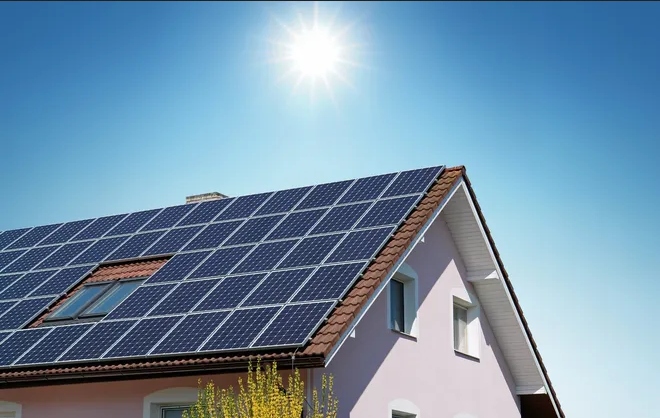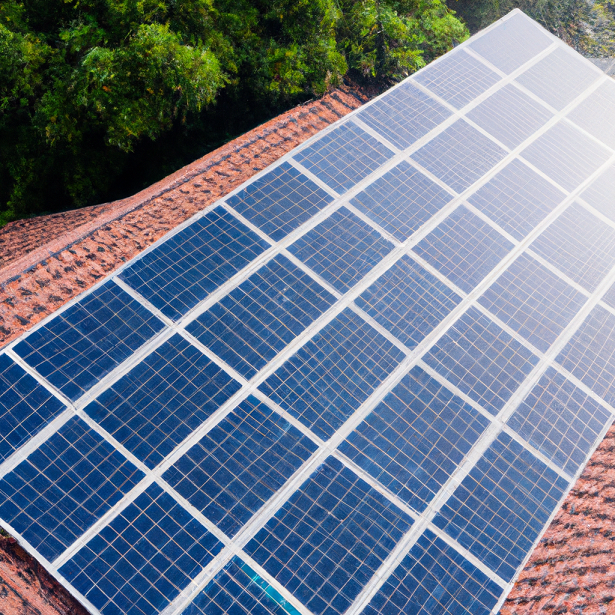We all know that the sun is a powerful source of energy. What you may not know is that this energy can be harnessed to provide a renewable and sustainable source of power for our homes and businesses. Solar energy is one of the most efficient and effective forms of renewable energy, and it’s time that we all started to take advantage of its potential.
There are many benefits to using solar energy, including the fact that it’s a clean and environmentally friendly source of power. It’s also a very efficient way to generate electricity, and it can help to reduce your energy bills. In addition, solar energy can be used to power a wide range of devices, from solar-powered calculators to solar-powered homes.
If you’re looking for a way to make a difference and help to change the world, then solar energy is a great place to start. Read on to learn more about the power of the sun and how solar energy can change the world!
The power of the sun and how Solar Energy it can Change the World

The sun is an amazing source of energy. Every day, it produces more energy than we could ever possibly use. If we could harness just a small fraction of the sun’s energy, we could power the entire world. The sun is a truly incredible source of power, and if we could harness even a fraction of that power, we could change the world.
Solar energy is getting better all the time. In fact, solar power has become a viable option for households and businesses who want to save money. For example, there are numerous companies that offer solar panels to homeowners at a very low price while providing excellent service, maintenance and reliability. But solar panels are not the only way to generate electricity from sunlight. There are many other technologies available today to supply power. A good example of an important technology that we have seen growing is batteries, which unlike solar panels (which collect energy from the sun) can store energy and use it at convenient times when the sun isn’t shining. Batteries have been used in cars for years but they are increasingly being used in things like laptops and cell phones as well as in home appliances such as refrigerators and washing machines.
If the sun is a source of energy, then the sun is a source of power. If you can harness the power of that sun, you can do great things. Whether you’re building a new solar-powered highway or powering your home with renewable energy, it takes very little effort to harness this enormous source of power. The problem is that it’s not very efficient. That’s where solar energy comes in – as an efficient way to generate power when the sun isn’t shining. Solar panels are mounted on roofs, so they are directly facing the sun and receiving its rays. They convert those rays into electricity, which can be used to run appliances and lights around your home or used to heat water for showers and baths. It’s a simple process that gives the sun its very own utility company! The only downside to solar is that it doesn’t work well in all climates and locations – even perfect conditions like a tropical paradise or desert will only produce enough power for limited times per day. So there are places where solar energy isn’t useful at all (such as in deserts) but there are places where it is practical (such as in temperate zones). To help solve these problems, engineers have created more efficient panels that produce greater amounts of electricity even when using less sunshine than originally intended (the size of solar cells has been increased so they can absorb more light). A new technology called “solar collectors” has caught on with companies like Greenpower Overseas Limitied, who say they can now build entire factories dedicated to producing silicon wafers for next-generation solar cells.
Solar energy is a renewable resource that can be used to generate electricity, to heat water or to heat air in homes and buildings. Solar energy can also be used to power transportation, to desalinate water, and for a variety of other industrial applications. The use of solar energy can help to reduce the reliance on fossil fuels, which are a limited resource and contribute to air pollution and climate change. Solar energy is a clean, renewable resource that can be used to benefit the environment and the economy. Due to its renewable nature, solar energy production can help reduce greenhouse gas emissions and climate change.
Additionally, solar energy can also lead to improved air quality and reduced water use. When selecting, designing, and managing sites for ground-mounted photovoltaics (PV) and concentrating solar-thermal power installations, it is important to minimize impacts to local wildlife, wildlife habitat, and soil and water resources.


